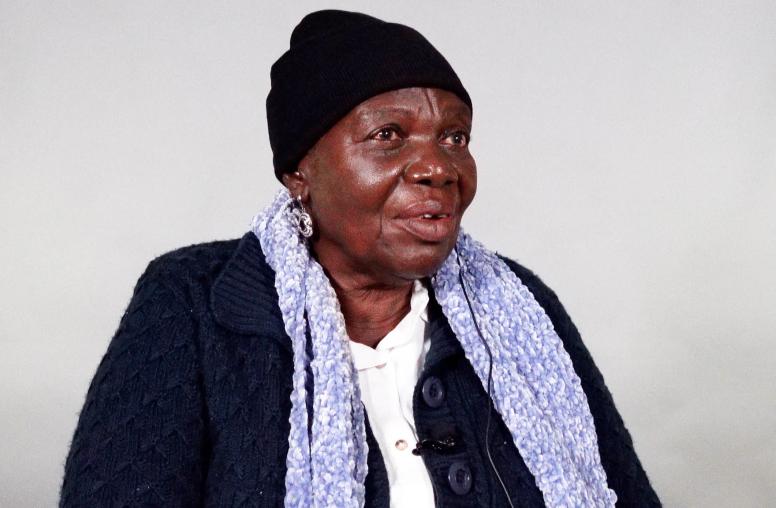Clean Hands in Peacekeeping: The U.N. Needs to Do More
In the wake of a United Nations report on atrocities committed at the end of last year by Congolese government soldiers and M23 rebels, USIP Jennings Randolph fellow Carla Ferstman sees a disconnect between the U.N.’s human rights standards for host government forces and those set for militaries that participate in its own peacekeeping contingents.

A new United Nations investigative report on massive human rights abuses committed by Congolese government soldiers and M23 rebels provides a much needed examination of atrocities perpetrated at the end of 2012. The U.N. is now reviewing its support to those units of the Congolese Army that were implicated in the abuses. Yet the report leaves unanswered significant questions about the U.N.’s peacekeeping work in the Democratic Republic of Congo (DRC). And by implication, it raises the wider issue of why the U.N. does not apply the same human rights conditions to militaries that participate in its peacekeeping activities that it does to a host government’s military.
The May 8 report by the Joint Human Rights Office of the U.N. Stabilization Mission in the Democratic Republic of Congo (MONUSCO) describes killings, arbitrary executions and mass rapes committed by Congolese government soldiers and M23 rebels. Government Army units are said to be responsible for systematically raping and sexually violating 102 women and 33 girls in the town of Minova. Twelve senior officers have been suspended pending criminal charges. They were investigated by a team comprised of Congolese military judges, MONUSCO and nongovernmental staff.
International attention has been focused on violence perpetrated by rebel forces operating throughout the country’s east, much less on misdeeds of government soldiers. The unflattering light shed on the conduct of some Army unites raises important questions for the U.N.’s ongoing work in the DRC: What role did MONUSCO have in training, equipping and assisting these troops? Given its mandate to protect civilians, what more could and should it have done to prevent these and related atrocities? Does the nature of U.N. collaboration with the Army risk making it complicit in these horrible crimes? And do the risks of complicity rise with news of the U.N. Security Council’s authorization of an “Intervention Brigade” mandated to carry out specific offensive operations, either unilaterally or jointly with the government forces?
Such issues are not new for the U.N. in the DRC. Since 2009 MONUSCO has conditioned its support to DRC Army operations to avoid collaborating with human rights abusers. It has screened Army commanders and others who receive or will receive support. The U.N. denies or suspends support for forces suspected of having committed serious violations, either directly or on their watch.
More broadly, in 2011 the U.N. Secretary-General adopted a Human Rights Due Diligence Policy that applies to all operations globally. Any security sector support provided by the U.N. must be consistent with its obligations to respect, promote and encourage respect for international humanitarian, human rights and refugee law. The policy reflects the need for the U.N. not to be associated with such abuses. That instinct is reasonable, but it is hard to see how leaving these forces to their own devices actually fosters better protection of civilians. The protection of civilians is at the heart of any due diligence policy. If collaboration with local armed forces needs to be ended, the parallel response is to step up efforts to protect the populations at risk.
Beyond the DRC, the U.N. needs to face more squarely the issue of how to more comprehensively avoid complicity with the actions of human rights abusers. If the U.N. imposes conditions on its collaboration with government troops, isn’t it just as important that the U.N.’s own troop contingents pass those same tests of “clean hands”? Some of the countries supplying the large contingents of troops are renowned for poor human rights records. Many of the forces participating in U.N. peacekeeping operations have fought in protracted civil wars and insurgencies back home, and some of them are not free of the stain of grave violations of human rights and international humanitarian law. The U.N. must do more to ensure that its own peacekeepers can satisfy the Human Rights Due Diligence Policy. If the U.N. aims to provide security sector support only to forces with clean hands, it must guarantee that its own hands are clean, too. U.N. vetting of would-be troop contingents should be just as rigorous—and perhaps more so—than its Human Rights Due Diligence Policy requires. For now, it is the troop-contributing countries themselves that are mainly responsible for guaranteeing the clean hands of their troops.
Going forward, the U.N. could strengthen its own capacity to oversee the vetting of peacekeepers. That could be difficult in practice, given the large numbers of troops and the resistance from troop-contributing countries to outside scrutiny. An alternative would be to create a U.N. standby force—an option that deserves much more attention. If the U.N. is serious about maintaining clean hands, it is not enough to scrutinize the militaries of host governments; it needs to do much more to ensure that its own peacekeepers reflect the highest possible standards of comportment.
Carla Ferstman is director of REDRESS (www.redress.org) and currently a Jennings Randolph fellow at USIP. Her work at USIP aims to secure remedies for serious human rights violations perpetrated within the context of U.N.-mandated actions. The views expressed here do not necessarily reflect those of USIP, which does not advocate specific policy positions.



